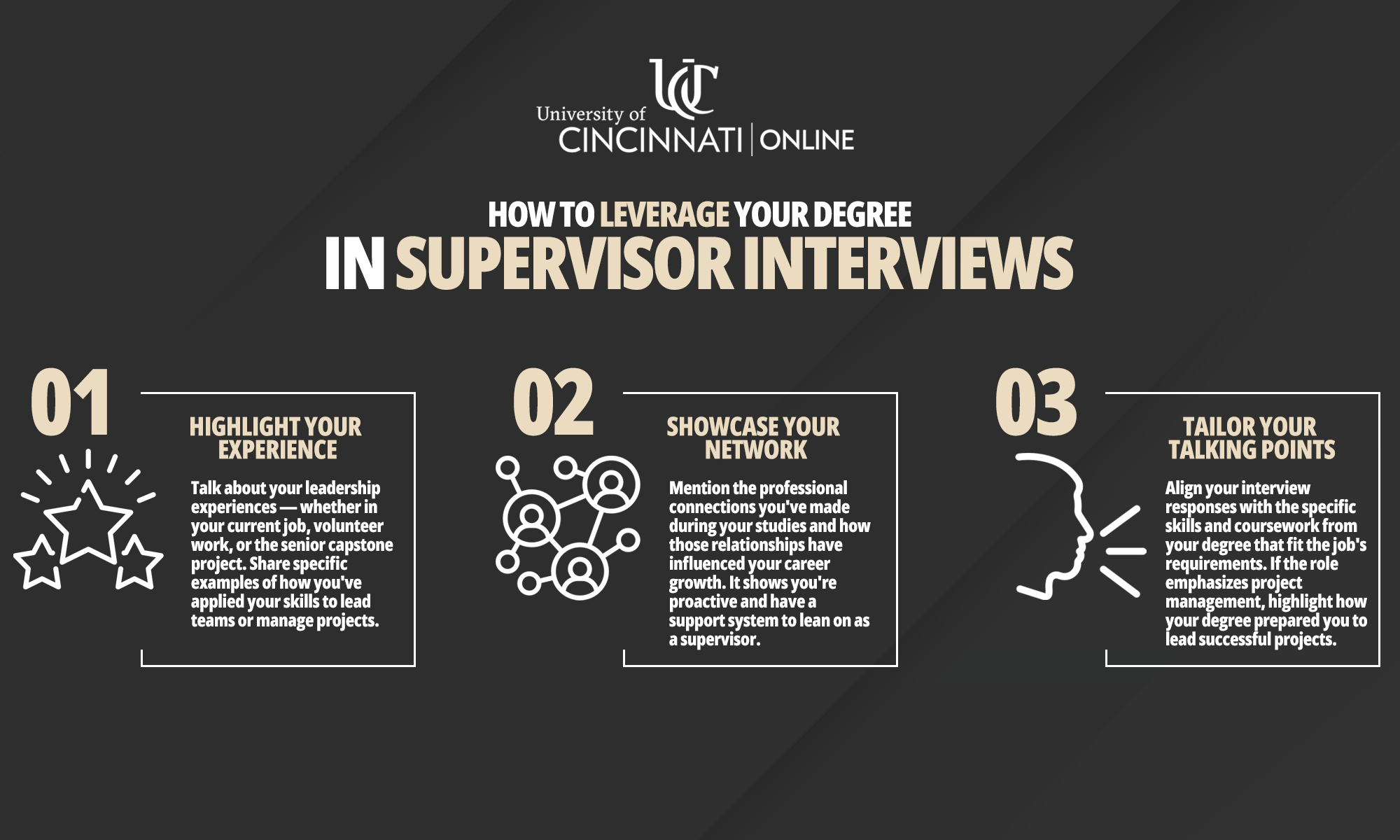How to Land a Supervisor Role with an Applied Administration Degree

In today's job market, advancing your career often requires more than just technical skills, you need the right education to step into leadership. If you've earned an associate degree that's equipped you with expertise in your field, the next move could be getting a Bachelor of Technical and Applied Studies in Applied Administration. How exactly can this degree help you secure a supervisor role? Let's explore how a Bachelor's in Applied Administration can be your stepping stone to advancement.
Why a Bachelor's in Applied Administration is a Smart Choice
A Bachelor’s in Applied Administration, like the fully online program at the University of Cincinnati, is designed for people who already have an associate degree. It not only builds on what you've learned but also enhances your leadership and management skills, which are key to moving into a supervisory role. For example, if you have graduated with an Associate of Applied Business in Supply Chain Management Technology, you already understand logistics, inventory control, and supply chain optimization. However, your employer says that you need more skills to lead a team or make strategic decisions. That's where a Bachelor's in Applied Administration comes in, providing the tools to manage projects, guide teams, and make a more significant impact.
What You'll Learn with a Bachelor's in Applied Administration
This degree builds on your technical foundation and adds the practical skills you need for a leadership role. Here's what you can expect to learn:
- Leadership and Management: Learn how to motivate your team, make informed decisions, and solve complex problems, all essential for a supervisor.
- Organizational Skills: Master time management, project planning, and resource allocation, ensuring you can lead effectively.
- Communication: Sharpen your written and verbal communication skills to connect with colleagues, stakeholders, and clients.
- Problem-solving: Hone your ability to tackle challenges and implement solutions.
- Human Resources: Gain an understanding of employee relations, recruitment, and performance management.
Why Employers Value a Degree in Applied Administration
Employers appreciate a Bachelor's in Applied Administration because it signals you've mastered both the technical aspects of your field and the leadership skills needed to manage a team. Here's why this degree stands out to them:
- Practical Leadership Training: This degree focuses on real-world applications, preparing graduates to lead teams, manage projects, and drive results.
- Transferable Skills: Whether your background is in supply chain management, IT, or any other field, the skills learned in this program apply across industries, making you a versatile hire.
- Immediate Impact: Since the degree builds on your previous experience, graduates are often ready to step into leadership roles right away, requiring less training and making an immediate contribution to their employer.

How to Leverage Your Degree in Supervisor Interviews
We have discussed how earning a Bachelor's in Applied Administration is a significant achievement that positions you well for a supervisory role, but how can you showcase your degree in job interviews? Here are some strategies to help you stand out:
- Highlight Your Experience: Talk about your leadership experiences—whether in your current job, volunteer work, or the senior capstone project. Share specific examples of how you've applied your skills to lead teams or manage projects.
- Showcase Your Network: Mention the professional connections you've made during your studies and how those relationships have influenced your career growth. It shows you're proactive and have a support system to lean on as a supervisor.
- Tailor Your Talking Points: Just like you would tailor your resume, align your interview responses with the specific skills and coursework from your degree that fit the job's requirements. For example, if the role emphasizes project management, highlight how your degree prepared you to lead successful projects.
Strategically presenting your education and experience will help you make a compelling case for why you're the right fit for a supervisory role.
The Bottom Line
A Bachelor of Technical and Applied Studies in Applied Administration is more than just a degree. It's a pathway to career advancement. This program builds on your technical expertise and prepares you to lead in various industries by focusing on practical, real-world skills. If you're serious about moving into a supervisor role, consider earning a Bachelor of Technical and Applied Studies in Applied Administration. It could be the key to unlocking your leadership potential in today's competitive job market.
Frequently Asked Questions
How do I get hired as a supervisor?
To get hired as a supervisor, showcase your leadership abilities, relevant experience, and advanced education, like a Bachelor’s in Applied Administration, that equips you with the skills needed for the role.
What qualifies me for a supervisor position?
You're qualified for a supervisory role if you have strong technical expertise, leadership experience, and a degree that emphasizes management and organizational skills, like a Bachelor’s in Applied Administration.
How can I move up to a supervisor role?
To advance to a supervisor role, focus on gaining leadership experience in your current job. Earning a degree like a Bachelor’s in Applied Administration can enhance your qualifications, making you a strong candidate for promotion.